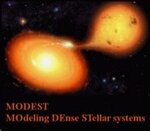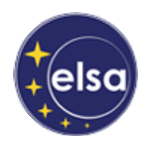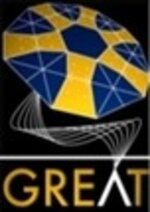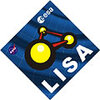National and International Networks

Heidelberg Graduate School of Fundamental Physics (HGSFP)
The HGSFP provides an excellent and flexible education in the fields of fundamental interactions and cosmology, quantum dynamics and complex quantum systems as well as astrophysics and cosmic physics.

International Max-Planck-Research School for Astronomy and Cosmic Physics (IMPRS)
The IMPRS is operated by the Max-Planck-Institutes for Astronomy and for Nuclear Physics together with the Faculty for Physics and Astronomy. It offers students a first-class education in the framework of the Heidelberg Graduate School of Fundamental Physics.
Witnesses of Cosmic History: Formation and evolution of black holes, galaxies and their environment (SPP 1177)
In the framework of the DFG Priority Programme SPP 1177 the project "Co-evolution of supermassive black holes and galactic nuclei" is aimed to elucidate the interaction between single and binary supermassive black holes and their nuclear environments, as a means of constraining the dynamical histories of observed galaxies; the past and current rates of interactions of supermassive black holes with stars; and the likely future evolution of supermassive black hole nuclei.

MODelling DEnse STellar Systems (MODEST)
MODEST is an informal international collaboration of leading groups in the field of stellar dynamics, stellar evolution, and the hydrodynamics of stellar collisions. The long-term aim is to provide a realistic model of young star clusters, globular clusters, and other dense stellar systems, which take all these effects into account. In the frame of MODEST a common software will be develped, and workshops and schools are organized regularly. The ARI is in charge of the Working Group 3 Stellar Dynamics, the Home Page of the network can be found at http://www.manybody.org/modest/.
International Research and Graduate School for Nonlinear Dynamics in Active Galactic Nuclei and Planetary Systems (IRGDYN)
IRGDYN is an association of funded international cooperations aiming to stellar dynamics in Active Galactic Nuclei and in Planetary Systems with special emphasis to educate graduate students.

European Leadership in Space Astrometry (ELSA)
ELSA is a Marie Curie Research Training Network supported by the European Community's Sixth Framework Programme (FP6). The network contract was concluded between the European Commission and ELSA on 1st October 2006 and has a duration of 4 years.
The overall objectives of ELSA are to develop the theoretical understanding and practical analysis tools of importance for the European Space Agency's astrometric mission Gaia (to be launched in late-2012) and to foster the development of a new generation of researchers in the area of space astrometry.

Gaia Research Network for European Astronomy Training (EU ITN GREAT)
The Initial Training Network (ITN) "GREAT" (2011 - 2014) is funded by the European Union (EU) in its Seventh Framework Programme. The GREAT ITN trains graduate students working on Gaia-related science. The GREAT ITN focuses on unravelling the origin and history of our home galaxy, on tracing the birth place and understanding the astrophysical properties of the stellar constituents of our Galaxy, on deepening the understanding of planetary systems by linking the study of exoplanets to the origins of the solar system, and on taking up the grand challenges offered by Gaia in the domains of the distance scale and the transient sky.

Gaia Research Network for European Astronomy Training (ESF RNP GREAT)
The Research Network Programme (RNP) "GREAT" is a European research infrastructure funded by the European Science Foundation (ESF). It aims at facilitating the full scientific exploitation of the Gaia satellite mission of the European Space Agency by supporting focused interaction on a European scale. The ESF RNP GREAT (2010 - 2015) provides partial funding for topical workshops, training events, exchange visits, conferences and so forth with the aim of addressing the major scientific issues that the Gaia satellite will impact upon.

Gravitational Wave Astronomy with LISA (DLR project)
In this project a large set of gravitational wave emission templates by merging events of compact objects like binary neutron stars or black holes will be calculated. The aim is to allow the Laser Interferometer Space Antenna (LISA) the identification of gravitational events from these sources.

Virgo EGO Scientific Forum (VESF)
VESF is a forum for the European science community around the collaborations VIRGO (a ground based interferometer for detection of gravitational waves in the 10-1000 Hz frequency regime, see the VIRGO sensitivity curve) and EGO (European Gravitational Wave Observatory). Together with the Theoretical Physics Institute of the University of Jena we work on a proper formulation of Post-Newtonian dynamics of compact binaries in N-body simulations and for the determination of waveforms and polarizations (see project page).
